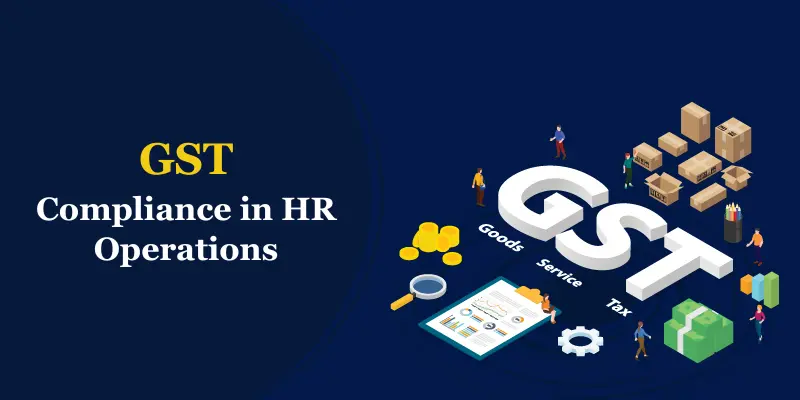
Efficient GST compliance is crucial for organizations to avoid legal risks and optimize financial processes. Ensuring compliance goes beyond payroll management for HR departments—it touches on reimbursements, employee benefits, and vendor contracts. Let’s explore how HR teams can strengthen GST compliance while streamlining their operations. To gain a deeper understanding and enhance your team’s GST compliance skills, consider enrolling in an HR Course in Chennai to equip HR professionals with the necessary expertise.
Understanding GST in HR Operations
GST impacts several areas of HR, including payroll, reimbursements, employee perks, and outsourced services. For example, HR departments often handle travel expenses and training reimbursements, which may include GST components. Mismanaging GST in such cases can result in non-compliance penalties or missed input tax credits.
Key Strategies for HR to Enhance GST Compliance
1. Centralize and Digitize Recordkeeping
Maintaining accurate and centralized records of expenses, reimbursements, and vendor invoices is essential. A digital recordkeeping system simplifies GST calculations and ensures all necessary documentation is readily available during audits.
2. Streamline Employee Reimbursements
Employee reimbursements, including travel and accommodation, often involve GST. HR departments should establish clear policies requiring GST-compliant invoices from employees to ensure input tax credits can be claimed. To better manage such processes and ensure compliance, HR teams can benefit from specialized training. Enrolling in a Training Institute in Chennai can provide the knowledge and skills needed to handle GST-related reimbursements effectively.
3. Review Employee Benefits for GST Implications
Benefits like subsidized food, gift vouchers, or corporate-sponsored travel may attract GST. HR professionals must collaborate with the finance team to understand the taxability of these benefits and ensure proper compliance.
4. Incorporate GST Clauses in Vendor Contracts
HR often manages third-party vendors for recruitment, training, and payroll outsourcing. Ensuring that contracts include clear GST-related clauses—such as registration numbers and tax breakdowns—helps maintain transparency and compliance.
5. Educate Employees and Stakeholders
Organizing training sessions on GST policies for employees can prevent submission errors and improve overall compliance. Employees should know the documentation required for reimbursements or claims involving GST.
Also Read: What Are the Key Components of Goods and Services Tax?
Benefits of GST Compliance in HR
When HR departments adopt robust GST compliance measures, they minimize legal risks, ensure financial accuracy, and enhance their organization’s reputation. Additionally, streamlined processes allow HR professionals to focus on strategic goals, such as talent acquisition and employee engagement.
Challenges to Overcome
While implementing GST compliance measures, HR teams may face challenges like understanding the intricacies of GST laws, integrating new technologies, or managing resistance to change. Collaboration with finance and tax experts can address these issues effectively.
Improving GST compliance within HR operations is not merely about avoiding penalties; it’s about fostering financial discipline and efficiency. By digitizing records, streamlining reimbursements, educating employees, and aligning with vendor GST norms, HR departments can significantly contribute to their organization’s compliance efforts. Embracing these best practices will ensure smooth operations and pave the way for long-term success.
For expert insights and tailored training on GST compliance, consider enrolling in GST Training in Chennai to equip your team with the necessary skills.
Also Read: Importance of Cyber Security for GST Payment Gateways